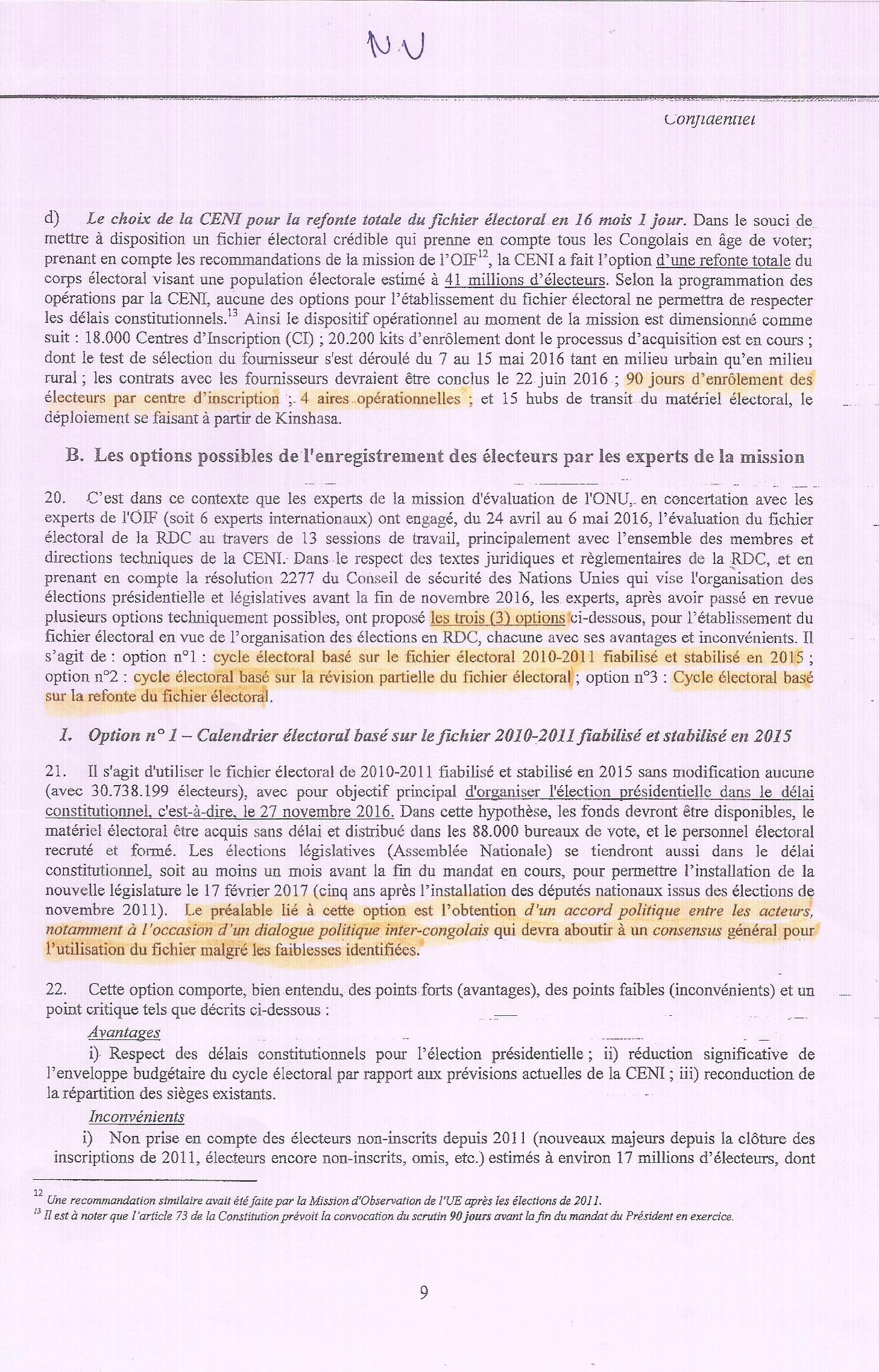In our report released today, we say that it is impossible for free and fair elections to be held in 2016. That will not please members of civil society, the opposition, or even the UN Security Council, who have said that elections must be held and a new president installed by December 20.
If Kabila does not hand over power by 19 December 2016, it will be at odds with its constitution. There are legal nuances to highlight: the president is elected for a 5 year term, but stays in office until the newly elected president assumes power (article 70)––the Constitutional Court, whose independence has been questioned, has basically given Kabila a blank check, saying he can stay in power until the next president in elected. Most people interpreted this clause as saying: a new president has already been elected, he just needs to be sworn in, and the incumbent sticks around until that happens.
And yes, article 76 says that, in the case of vacancy at the top, the president must hand over to the head of the senate, and new elections must be held within 4 months. But Kabila will not hand over to Kengo, so that’s largely irrelevant.
Which brings us back to the question: Can good elections still be held this year?
Not according to an unpublished report by the UN and the Organisation de la francophonie. The relevant pages are pasted below. So yes, elections can be held on time, but only if the CENI foregoes the revision of the voting register. This would exclude around 7 million new voters who have come of age since 2011 and include around 1,6 million dead people. It would also consecrate a host of other suspicious issues regarding the voter register.
These conclusions match our own, as well as that of many foreign diplomats. Civil society has put forward a bold plan to rush through a simplified registration process. Perhaps. But there is no political will.
For more analysis and background, read our report here.

